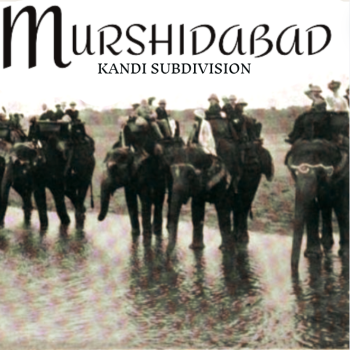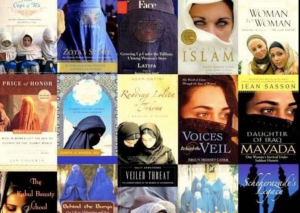A reminder to those who imagine that anti-Semitism is a particularly "Muslim" problem today.
Cuddly, non-Muslim India has it, too. In spades.
And this despite the fact that, unlike most Muslim countries, India is closely allied today with Israel. By no stretch of the imagination is India locked–either militarily or culturally–in a cold war with a Jewish state.
From "Hitler-themed eatery draws fire" on MSNBC.com:
A new restaurant in India’s financial hub, named after Adolf Hitler and promoted with posters showing the German leader and Nazi swastikas, has infuriated the country’s small Jewish community.
Hitler’s Cross, which opened last week, serves up a wide range of continental fare and a big helping of controversy, thanks to a name the owners say they chose to stand out among hundreds of Mumbai eateries.
“We wanted to be different. This is one name that will stay in people’s minds,” owner Punit Shablok told Reuters.
Looks like they succeeded.
What this article failed to report, however, is how popular Hitler is in modern India. In recent surveys among India’s best and brightest, he’s been ranked in the company of the Mahatma! (How’s that for a soundbyte from Hell?) Radha D’Souza reports on ZNet ("The Return of Hitler As Hero: The World Through Cracked Lenses"):
A recent article in the Times of India, Mumbai reported on a poll of students from India’s premier academic institutions about the country’s political future. 17% of the students polled, favoured Hitler as the ideal model for the kind of leader India ought to have. The present Prime Minister, Atal Bihari Vajpayee, was ahead of Hitler at number two and oddly, Gandhi ranked number one. Hitler represented discipline, efficiency and nationalism to the students (Times of India, Mumbai, December 26, 2002).
Pretty disturbing.
Had this report been about madrassah students in India’s beleagured and oft betrayed neighbor Pakistan, Washington would be consumed with righteous indignation and would fixate on the incident every time the country was mentioned for the next decade. In the case of India, however, such a sobering and illuminating tidbit of information will go straight down the Memory Hole of geopolitical myopia.
"But unlike in Pakistan these things are abberations in democratic India!" some no doubt will protest. I’m not sure the contrast is so stark when you look beneath the surface and beyond the headlines.
For all its serious problems I don’t think Pakistan has witnessed state sanctioned ethnic cleansing of a minority community as was seen in 2002 in Gujarat (see also the chilling report from Human Rights Watch).
The treatment of Pakistan’s Christian minority is shameful, but I think it’s fair to say that it is more the result of the good old fashioned elitism and racism that infects many a developing society today (India included) than a dangerous ideology like Hindutva (here’s another interesting discussion by a secular Indian). In Pakistan, Christians tend to be darker complected and hail from the poorest backgrounds, tending to work in the most menial and unprestigious of professions, which not surprisingly makes them particularly vulnerable to prejudice and discrimination in so class conscious a society as Pakistan.
As everyone knows today thanks to round-the-clock coverage of Pakistan’s faults, Pakistan has its own dangerous ideologies (some of which were developed with active US support), but contrary to the hysterical rhetoric of Chicken Little Islamophobes, their primary victims have been and continue to be mostly other Muslims.
I haven’t heard of any cases of Christian missionaries gettting burnt alive in their car with their families in Pakistan, for example.
My point is not to bash India, but to highlight how differently its problems are treated by the American and international media. It has "mullahs" every bit as fanatical, intolerant and dangerous as the Taliban and India’s Hindutva zealots wield considerably more political power than their mullah colleagues across the LOC, yet you’d never guess that from media coverage.
But back to the restaurant…
As disturbing as this case is, I think it’s important when pondering such cases to remember that most Indians (and most Muslims around the world, for that matter) are much less aware of the horrors of the Holocaust than Westerners. That’s lamentable, but it’s a fact. They also lack a collective experience of complicity in ideologies that culminated in pogroms or the Nazi nightmare.
None of this justifies complacency in the fact of such sinister social developments, of course, but it does necessitate a more nuanced psychological analysis than simply declaring Indians neo-Nazis because many express admiration for Hitler.
That careful analysis comes naturally when Westerners (e.g., When try to explain the success of Jorg Haider, we don’t make generalizations about Austrian culture being inherently prone to anti-Semitism) or admired non-Western cultures (e.g., India) are on the dock, but we find it exceedingly difficult and unnatural to extend the same courtesy to peoples for whom we lack that warm & fuzzy feeling, like, well, pretty much all Muslim societies.
Thus, Muslims get treated by a blunter, far less forgiving, standard. There is no need to contextualize or search for rational explanations when confronted by irrationality among Muslims. They’re fundamentally Other. They don’t have the same basic human values as you or me. They cannot be reasoned with. They’re children of a lesser god. Exterminate the brutes. But I digress…
While I have no doubt that openly fascist worldview of India’s Hindutva movement has contributed to this disturbing fascination with Adolph Hitler, my guess is that these cases are more a manifestation of the deep-seated fascination with power that one finds everywhere–Hence the inexplicably romantic aura that surrounds the medieval mass murderer, Ghengis Khan.–than hatred or real admiration for this repellent man.
Or so I hope, given how large India looms in the world’s future.















